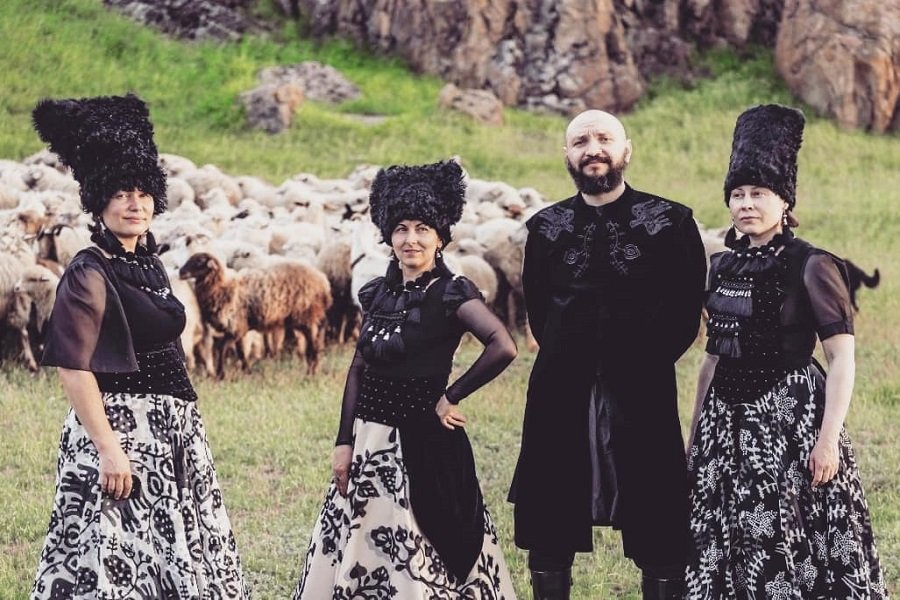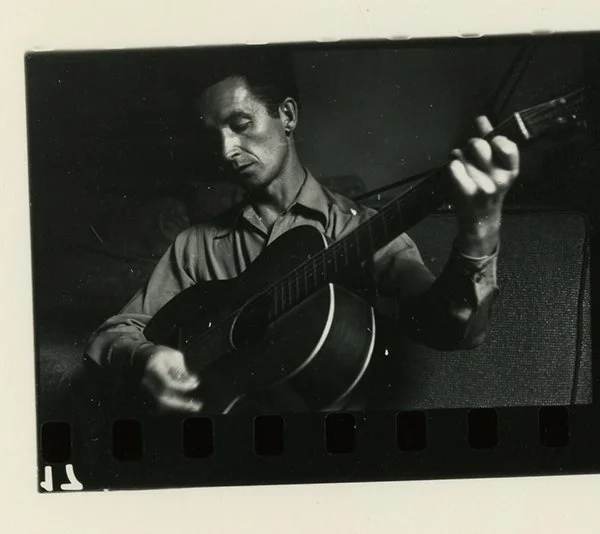Las Cafeteras' Fun is Fueled by Purpose

Las Cafeteras
The activism of the members of the band from East Los Angeles led to their formation.
Las Cafeteras’ version of “This Land is Your Land” is the band in a nutshell.
The band from East Los Angeles remade the song as a norteño, a Mexican musical genre that often addresses socially relevant topics. “Some people just love a norteño,” Las Cafeteras’ Hector Flores says with a grin. They sing it en Español, which makes it subversive. First, from a historical perspective, brown-skinned people were here first, so their song highlights the idea that if anyone has true standing to share the country, it’s them. At a time when part of this country sees immigrants as outsiders and a threat, the assertion that “this land is made for you and me” also comes with a hint of confrontation, no matter how it’s delivered. And, despite the hostility shown to many brown-skinned people, Las Cafeteras sing it with a good-natured warmth, as if those who’d write them out of the American story can’t be taken seriously.
They add a cheeky layer to that, rewriting Woody Guthrie instead of simply translating him. At one point, they sing a line of Zapatista philosophy that translates to “Everything for everyone, and nothing for ourselves,” according to Flores. The line reflects the way the native peoples understood land and water as things that were not to be owned, and in that thinking, Las Cafeteras ultimately stay true to Guthrie’s message despite all the changes. Most people only know the first verse of two of “This Land is Your Land” and know it as a song asserting the majesty of America. After four verses like that, Guthrie dropped the hammer:
As I went walking I saw a sign there
And on the sign it said "No Trespassing."
But on the other side it didn't say nothing,
That side was made for you and me.
In the squares of the city, in the shadow of the steeple,
By the relief office I seen my people;
As they stood there hungry, I stood there asking
Is this land made for you and me?
The critique of capitalism and entrenched power that fueled Las Cafeteras’ version was baked in from the start by Guthrie.
Las Cafeteras’ play The Broadside Thursday night with DJ Santero and Doctor Nativo opening.
Las Cafeteras’ set was one of the highlights of Jazz Fest 2022. Their commitment to social justice was hard-wired into their presentation, but that sense of purpose didn’t come at the expense of the good times. If anything, it fueled them. Perhaps that’s because the members’ activism came before their music career. Growing up, Flores was drawn to Tupac Shakur’s politically minded music, and he remembers singing “Dear Mama” and “Keep Your Head Up” in seventh grade because they resonated as a child in a working class household in L.A.
“Denise [Carlos] in the crew, she loves riot grrl,” he says. “Riot grrl was a movement of women using their voices screaming, yelling, poetry, and she was drawn to that.” He thinks that as children of undocumented immigrants, the desire for change and better lives for those around them was taught to them by their parents, and it united them when they met in college. “I met José [Cano] during a rally against budget cuts,” he says. “I met Denise doing Zapatista-inspired work.” They learned to play together because “rallies are only fun when there’s music.”
Flores doesn’t think of their songs as political, but he recognizes that what you say can be political, simply because of who you are. The band started out trying to tell the stories of the people around them. “Because the lives of the folks I live with are politicized, there it is,” he says. He points out how a queer person singing a love song in Florida where “Don’t Say Gay” is part of the social backdrop takes on a political dimension, and how women dealing with love and relationships in songs at a time when reproductive freedom is challenged are making political songs, even if that’s not their intent.
He is also a little uncomfortable with that reality. “That’s not how I want to be tagged,” he says. “I want to be known as a dope artist like anybody else.”
But Las Cafeteras’ sense of purpose is strong. “I’m trying to put medicine in your menudo,” he says. “I want you to eat it up and not even know that what I’m bringing you is hundreds of years of solidarity. Something that has been remixed and brought to life in a new way and bringing other folks along. That’s the goal. Like we say, Decolonize the dance floor.”
Creator of My Spilt Milk and its spin-off Christmas music website and podcast, TwelveSongsOfChristmas.com.






